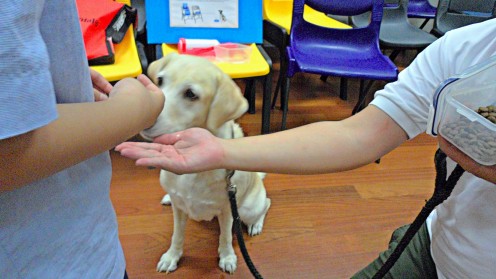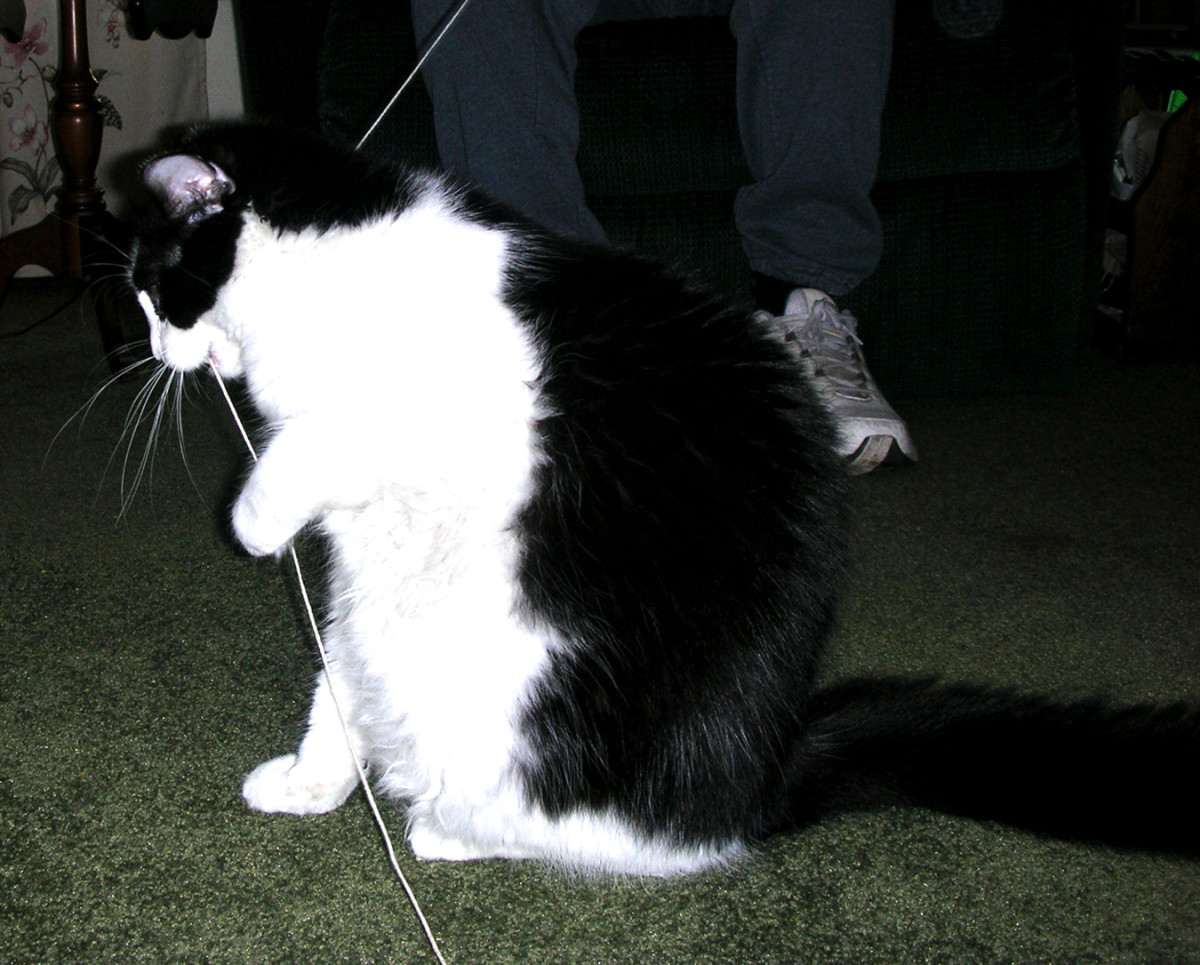How Animals Benefit Us

Those who have a pet passion like mine will nod with heartfelt agreement when I say that pets are good for us.
This reaction baffles some. Nonetheless, pets touch our lives in countless ways. Pet ownership has proven physical, mental and emotional benefits. Many have also gained from various pet-assisted therapies.
It is time to convince all who think otherwise that owning or interacting with a pet does us a world of good.

A. Why some people are not drawn to animals
Unfortunately, some of us are not drawn to animals for various understandable reasons.
They may have ingrained, negative attitudes about animals that stem from their upbringing or environment. Often, hearing friends or relatives discuss their negative experiences with dogs or cats deters them from having their own.
Some have inexplicable phobias that are difficult to shake off. My husband’s cousin has a phobia of dogs that keeps her glued to the couch when another cousin’s gentle schnauzer comes near. I also came across a young woman who froze in fear when I passed her by in the lift landing with my terriers, Misty and Cloudy. She absolutely refused to budge until I had entered my home with the dogs.
Such phobias are, quite often, result from the lack of exposure. Perhaps they did not have opportunities to interact closely enough with an animal to realize how harmless most of them are, especially when treated well.
Others are the victims of horrible experiences. A friend of mine was once chased by a pack of dogs before he eventually managed to flee to his own home. It was only when I introduced him to Misty and Roscoe, my Jack Russell still alive then, that he began to accept that animals were not fearsome unless he perceived them that way.
With busy, fast-paced schedules, many do not have the time to care for animals. They make the wise decision not to own one as it is not fair to the animal to neglect it.

From your experience, what makes people fear animals?
B. Why caring for a pet is beneficial
The aim of this article, therefore, is to change such perceptions. Owning a pet gives us advantages beyond our imagination. They are boons for all areas of our well-being.
Studies have shown that people with pets have much lower blood pressure and stress levels. Pets are not restricted to dogs or cats. Merely watching fish in an aquarium is therapeutic. It lowers tension and pulse rate, explaining why avid fish owners fill their homes with tanks.
Playing with a pet can raise the levels of serotonin and dopamine in the body, chemicals that calm and relax you.
Heart attack patients with pets tend to live longer. A study showed that pet owners over the age of 65 made 30% fewer visits to doctors than their counterparts without pets.
Besides, pets increase your activity level. You will find a healthy game of chase with a little dog irresistible. I recently made my husband run with Cloudy to help him burn off a few excess calories.
Pets give your life structure. Having to feed them at certain times makes you pay attention to routine.
They also help you know others. I round myself gathering a few more friends recently when I introduced Cloudy to a new group of human and canine buddies at the park.
Health Benefits of Companion Animals
C. The benefits of Pet Therapy
If pets benefit us, they are even more beneficial for those who face difficult, more complex physical and mental challenges. Pet-assisted therapy and its benefits are well-known.
1. How pet assisted-therapy works
Pet-assisted therapy aims to promote healthy interaction between pets and those who are mentally, emotionally and physically disabled. Such therapy works on the premise that physical contact with a happy pet gives them the same positive benefits they do us.
Pets and their owners make regular visits to care homes and hospitals with this goal in mind.
2. Who can benefit from pet-assisted therapy?
Disadvantaged children with grave illnesses or disabilities benefit greatly from a pet’s healing paw. Often, they draw out those who are more insular. Those diagnosed with autism interact better when they come into contact with pets.
To add, a pet’s touch gives cancer patients and those in long-term care facilities hope and a greater impetus to heal.
Pets heal those hospitalised with chronic heart failure because contact with them improves stress levels and tension.
Anyone who had traumatic encounters and developed Post Traumatic Stress Disorder will gain much from the regular visits of a dog. They lessen the build up of tension.
Naturally, animals must make the cut to give such therapy. They must know how to keep their distance and composure if they get uncertain or aggressive reactions. They must curb their enthusiasm as well, lest others misconstrue it.
3. The advantages of pet-assisted therapy
There are many reasons why pets have become healers. The physical, mental and emotional benefits for recipients are astounding.
a. Physical Health
Physically, a pet’s touch instantly lowers blood pressure. Regular contact with a pet improves cardiovascular health.
Besides releasing calming endorphins, they also diminish physical pain. Petting a dog produces an automatic relaxation response and lessens the need for medication in the long-term.
b. Emotional Health
Few of us need reminders that pets lift spirits and lessen depression. As writers, we often work in isolation, so a friendly pet helps to put these feelings away.
They help children overcome speech and emotional disorders like autism or Attention Deficit Hyperactivity Disorder (ADHD) by giving them the comfort they need.
c. Mental Health
Pet-assisted therapy encourages communication and lowers anxiety. By increasing opportunities to interact with others, they help those in contact with them recover faster.
Oure Areas Of Need
| How Pets Benefit Us
|
|---|---|
Physical
| Pets lower blood pressure
|
They improve cardiovascular health
| |
They release endorphins
| |
They produce automatic relaxation responses
| |
Mental
| They encourage communication
|
They increase socialisation
| |
Emotional
| Pets lessen depression
|
They overcome speech and emotional disorders
|

Conclusion
If you have not gotten yourself a pet or know anyone who needs help from one, why not make the move to own one today?








